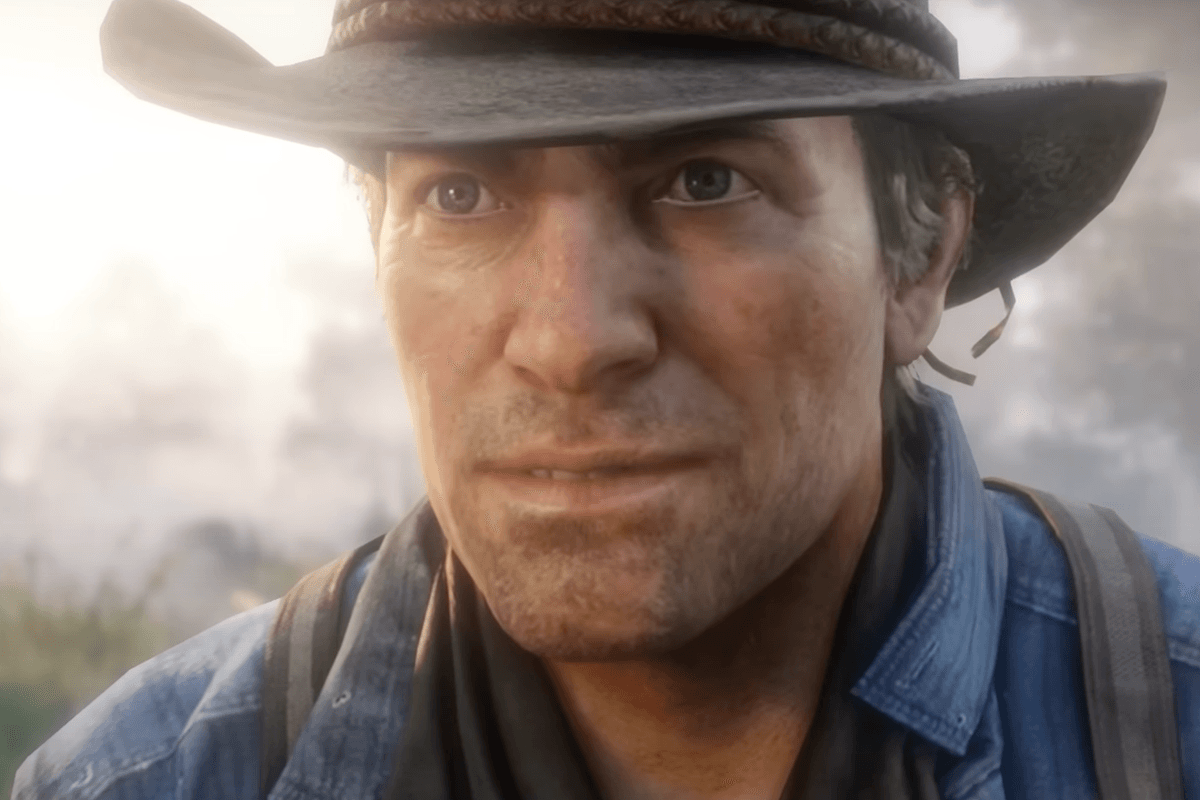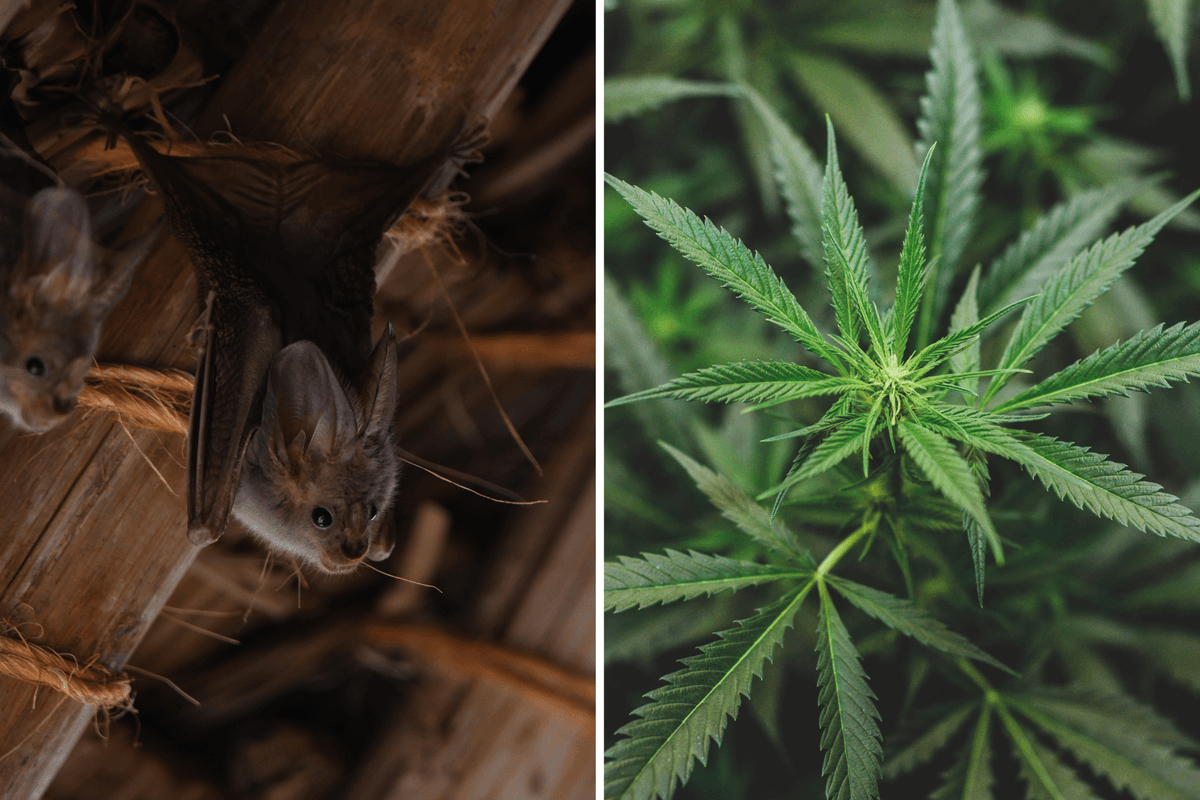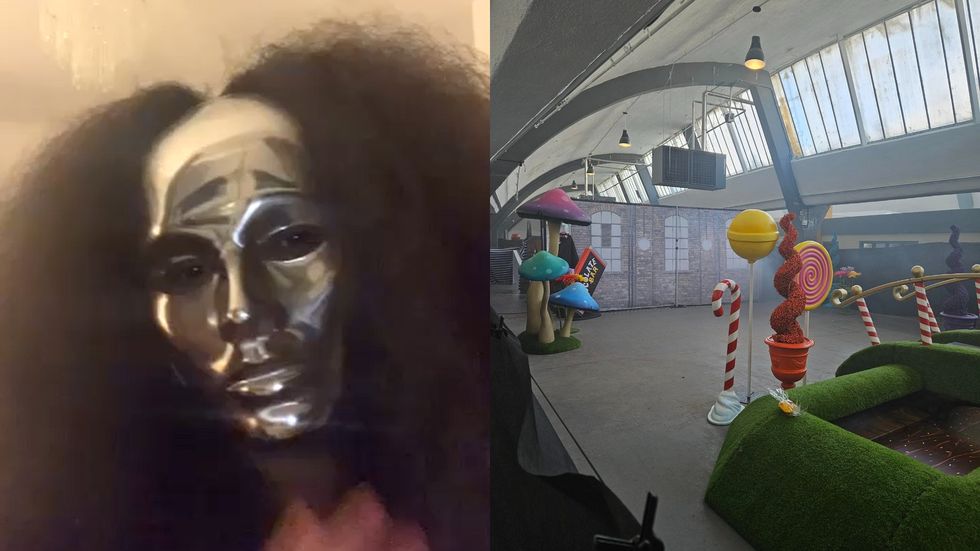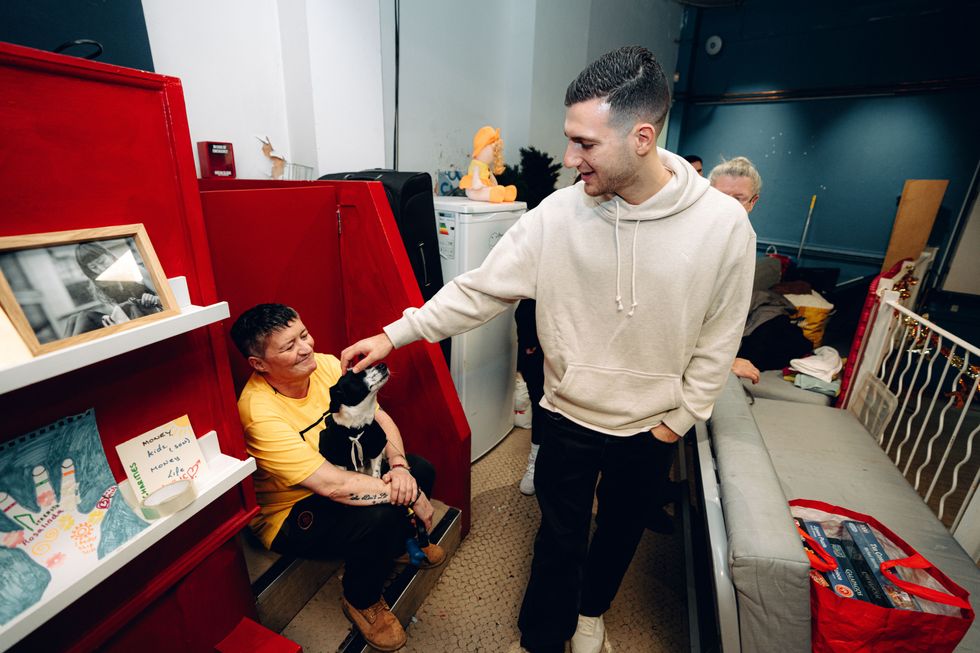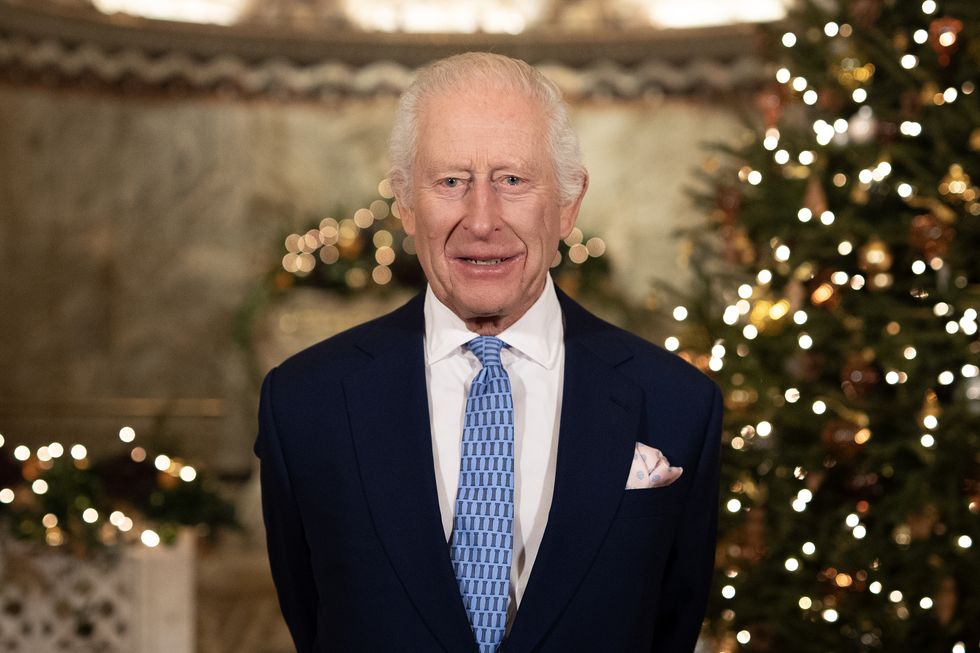Becca Monaghan
Dec 03, 2024
Discovery of one of the oldest-ever fossils sheds new light on rise …
Various
Researchers made an extraordinary discovery of 9,000-year-old rocks with drawings etched into them, positioned next to footprints believed to belong to dinosaurs from the Cretaceous Period around 66 million years ago.
The drawings, known as petroglyphs, were found in the agricultural site Serrote do Letreiro in Paraíba, Eastern Brazil.
Researchers first came across marks back in 1975, but recent surveys carried out by drones picked up on the drawings.
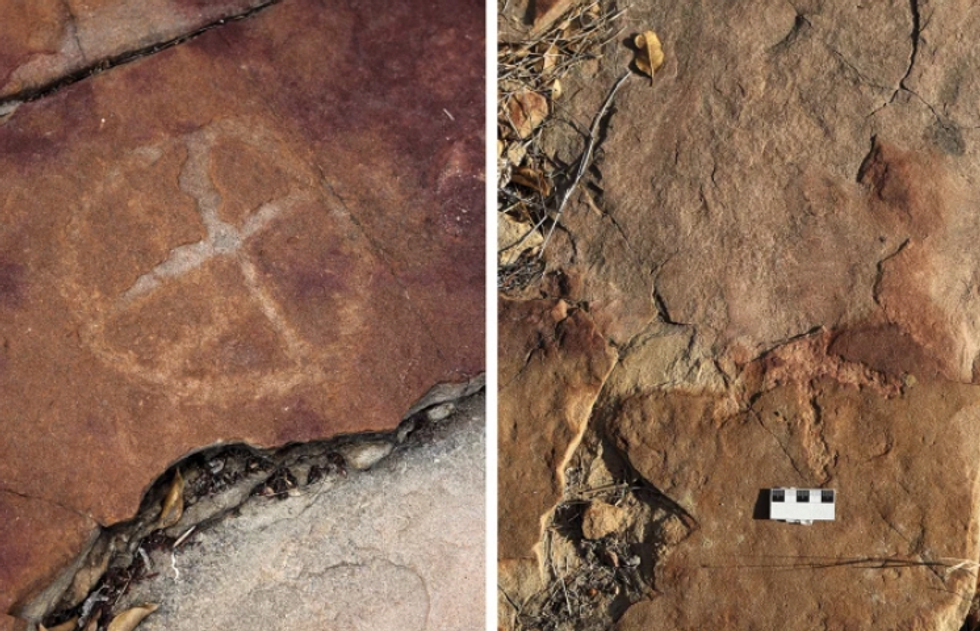
The sketches differed in style, hinting that multiple humans were involved. The team believe the carvings were deliberately placed next to the dinosaur prints with some as close as two to four inches away.
The findings suggest the artwork could belong to a "small seminomadic groups of hunters and gatherers" living in the region between 9,400 and 2,620 years ago.
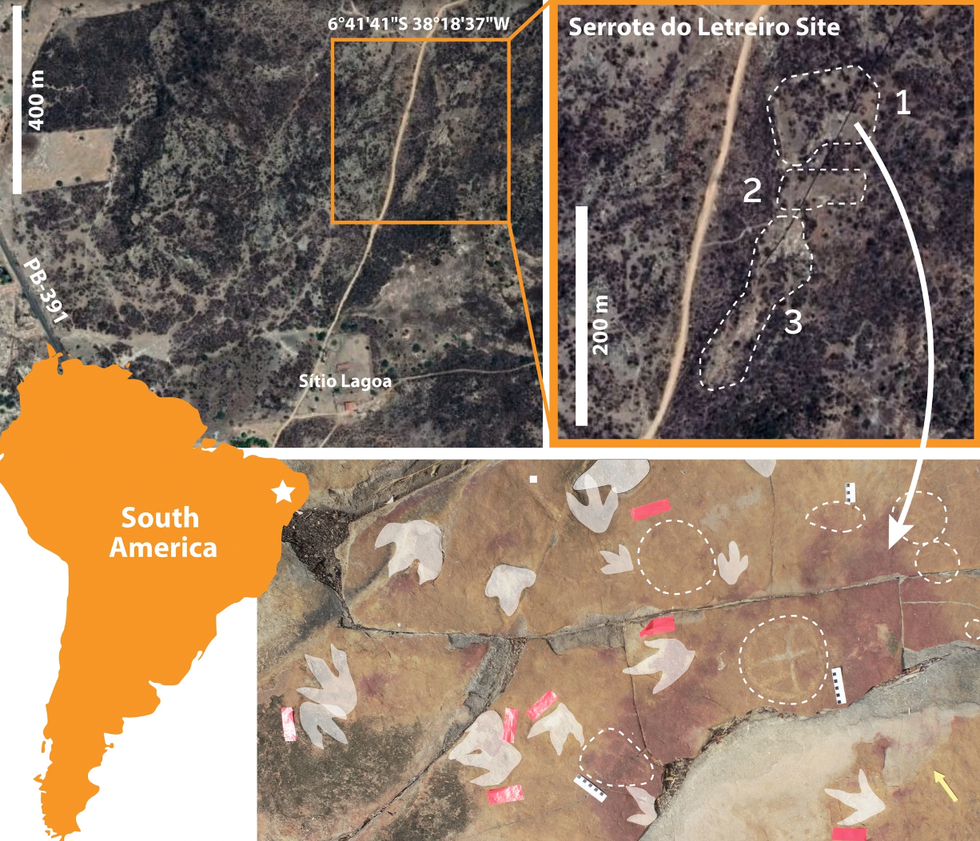
"The ancient inscriptions (petroglyphs), strategically positioned around the dinosaur footprints, reveal a deep reverence for fossil tracks among Brazil’s ancient, indigenous communities," Leonardo Troiano, Coordinator of Cooperation and Promotion at the National Historic and Artistic Heritage Institute (Brazil) wrote.
"The findings bridge ancestral symbols with the fossil record and highlight the connection between native people and fossils.
"Ultimately, this site is evidence of our species' journey and the ongoing human engagement with the natural world and its fossil record (an especially rich one in Brazil). As such, this special site forms an integral and unique component of our collective cultural heritage."
The team's findings offer insight into the intersection of palaeontology and archaeology – especially at the Serrote site.
Speaking about the findings, Troiano said the team "couldn't be prouder". He went on to express gratitude towards his team: Aline Marcele Ghilardi and Tito Aureliano, palaeontologists, and Heloisa Bitú, archaeologist.
This article was originally published on November 30, 2024
How to join the indy100's free WhatsApp channel
Sign up for our free Indy100 weekly newsletter
Have your say in our news democracy. Click the upvote icon at the top of the page to help raise this article through the indy100 rankings.
Top 100
The Conversation (0)






